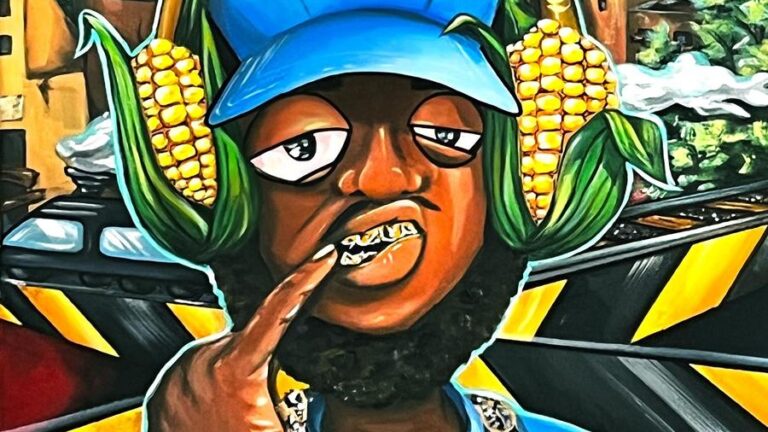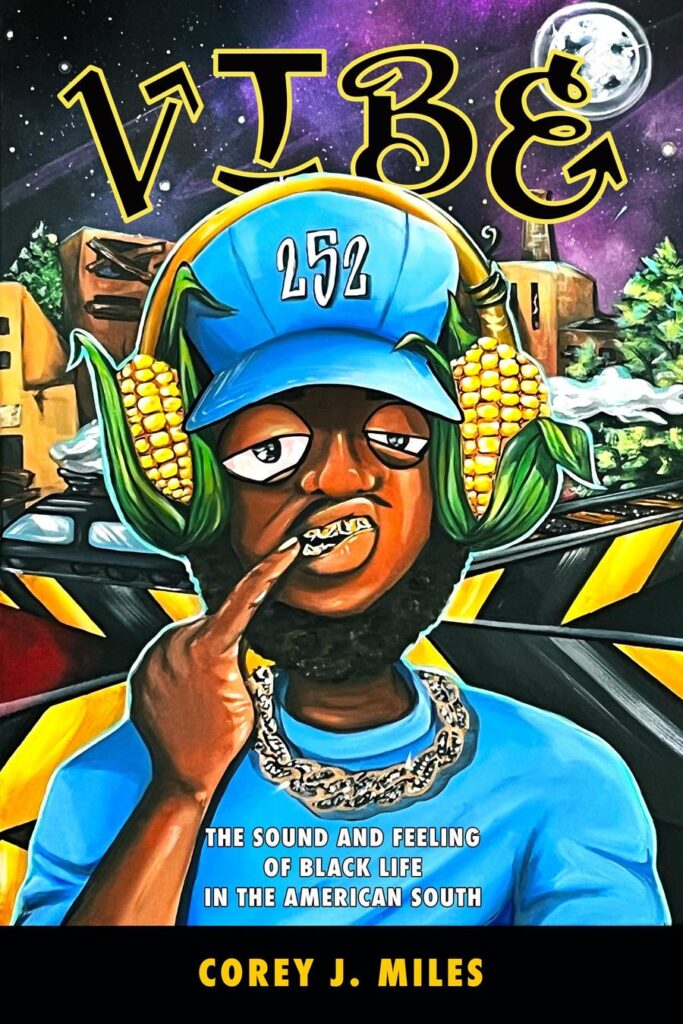
The Vibe of the South
The newest ERI Book Spotlight is written by Corey J. Miles, assistant professor of Sociology and Africana Studies at Tulane University, who writes about the inspiration for and themes from his book Vibe: The Sound and Feeling of Black Life in the American South.
This book narrates how southern Black sound, feeling, and being is constantly policed, surveilled, and criminalized. In doing so, he re-narrates the region as the “’carceral South,’ to capture the ways people in the South and beyond can feel the emotional weight of the criminalization of Blackness.”
For the second time in two years my grandma sat front row at a burial to watch one of her children laid to rest. In 2019 it was my mama and in 2021 my uncle. It felt like time was inverted. A black boy watching his grandma while she watched caskets, that none of us could afford, steal her children away. This time was different though. In 2019 my mind was rushing to locate all the experiences I had with my mama and turn them into memories because that’s all I had left of her, so I really didn’t see my grandma. When my uncle was murdered, I was angry and looked to the faces of my hurt family members to validate that anger.
I hated that n—- that shot my uncle. I hated myself because I spent the last ten years of my life away from my mother pursuing a degree that never provided financial stability nor a better understanding of my mother’s complicated life. Three days before my uncle’s funeral I drove to northeast North Carolina with trap music, southern rap centered on drug dealing and violence, blasting through speakers that couldn’t get loud enough to drown out the quiet of a lonely car ride. The hi-hats and 808s of the trap instrumentation hit my chest like the phone call from my brother telling me the news about our uncle. The unabashed stories about violence, drugs, and crime held me during the ride. It was trap music that affirmed my fears and all the other hard to name emotions I had. The music made me feel seen, which in turn let me know that even in the midst of my anger I could be some form of beautiful.
One of the few references I had that could explain how such a violent and dark sound could make me feel beautiful was the relationship I developed with rap artist Premo during my ethnographic fieldwork in North Carolina between 2016-2020. His songs layered with stories about struggle, violence, and possibility always made me feel something. Both our fathers made attempts at loving our mothers but eventually left looking for dreams that America promised men, but the South denied to Black men. While we have a lot in common, on our first night meeting it was conversations about how the criminal legal system made both of us feel anxious that we developed a close relationship. Premo ended that night by dapping me up and during our embrace saying, “you have a good vibe.” At that moment I thought he was making a valuation of my personality, but over the next four years what I would grow to understand is that he was talking about a particular type of relational experience between us.
I have no formal criminal record nor experiences with the criminal legal system that will show up in any database, Premo does. My experience escapes quantifiable ways of understanding the carceral state. To some it may appear that Premo and I would have different concerns as it relates to the criminal legal system, but “vibe” as a theoretical concept helps explain how we bonded over a similar positioning to that system even though we have a qualitatively different experience with it. Sociology as a discipline has attempted to observe, quantify, and index its way to an understanding of Blackness through calculations of disparity. Even though I may have slipped through the cracks of the criminal legal system and don’t show up in any databases, having to live in relation to that system is emotionally scarring and we bonded over that type of pain. When Black people like me grow up in the projects and become conventionally successful, society may say “he avoided being a statistic.” Does avoiding being a statistic mean avoiding anti-Blackness all together?
Vibe is an accounting of Black life beyond numerical calculations of disparity, and it takes seriously that the unsayable and unindexed sounds, feelings, and moments that make up Black life can tell us something about how Black people are situated in society. Vibe names the process of using the felt experience, whether it is the social climate, emotions, or bodily gestures to understand social structures and it is also a collective communicative system used to name experiences that standard emotive language fails to approximate. When Premo said I have a good vibe he was talking about the social climate we produced together at that moment. To say that the space we created together felt good or safe didn’t quite get to what he wanted to communicate. Vibe was a way to gesture to a type of relational experience that standard American emotive language just doesn’t capture.
The trap songs I listened to on the drive to my uncle’s funeral made me feel beautiful because when those gritty sounds collided with the pain that lived in me it produced a moment that was sincere to my needs and desires. The vibe was good. My book Vibe: The Sound and Feeling of Black Life in the American South is concerned with using the inner lives of Black southerners to re/map how we understand what and where the US South is. It demonstrates that Black southerners can feel the weight of the criminalization of Blackness on their skin and that Black feeling is denied any structural significance. Trap music sounds like what being Black in the South feels like. The book pushes back against sociology’s desire to study Black people and moves us to vibing with them to see what is made legible through this shift. Black southerners have always fought to reshape the material and political landscape of the South. Vibe centers how Black placemaking is also about creating spaces that are attuned to the emotional needs and desires of Black people. They have done this through changing the vibe of the South.
About the Author 
Corey J. Miles is an assistant professor of sociology and Africana Studies at Tulane University. He is the author of Vibe: The Sound and Feeling of Black Life in the American South. His research is a conversation between the intimacies of blackness, hip hop, racialized emotions, carcerality, and ethnography. Miles is from the rural black town of Weldon North Carolina, where he learned that style and beauty are central to how black people move above the red clay they live on. Even more important than a list of professional accomplishments, he is committed to living blackness in community with other black people.
© 2023. This work is licensed under a CC BY-NC-ND 4.0 license.
